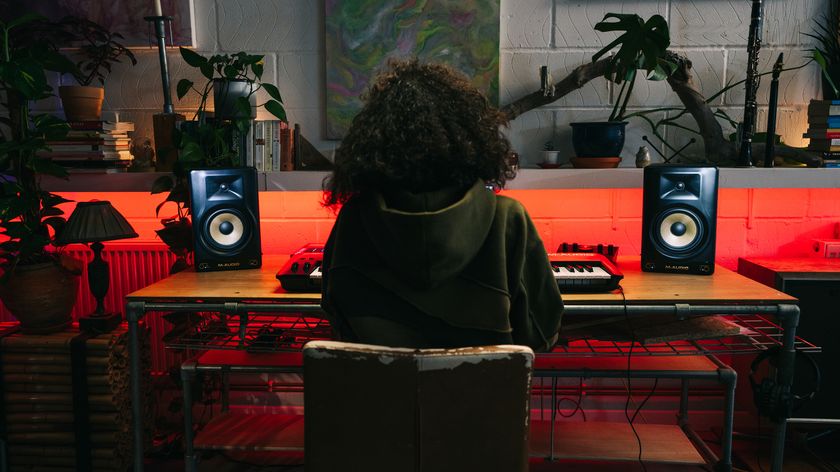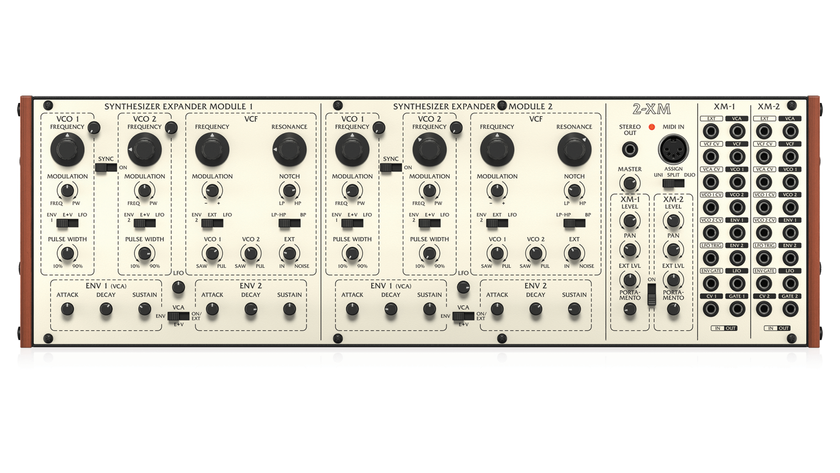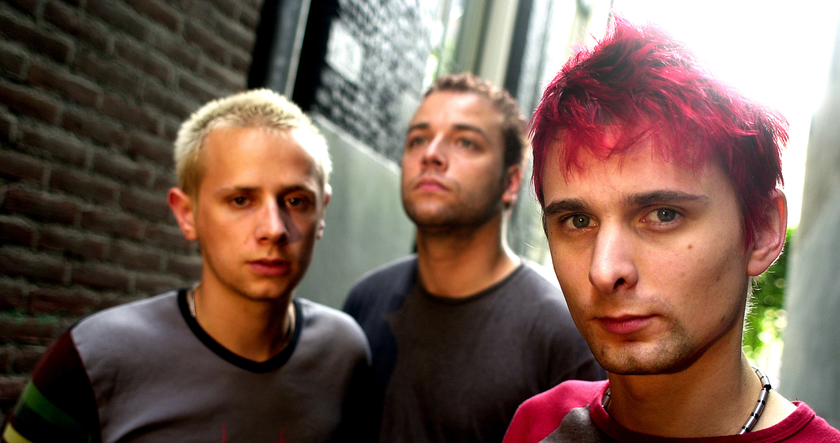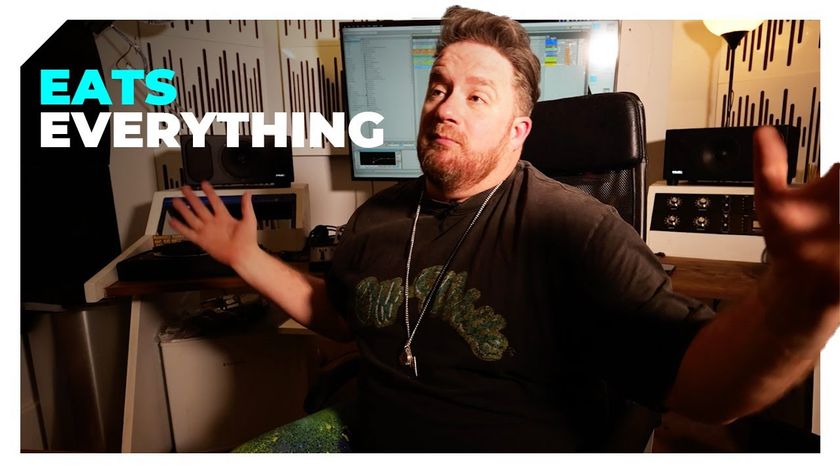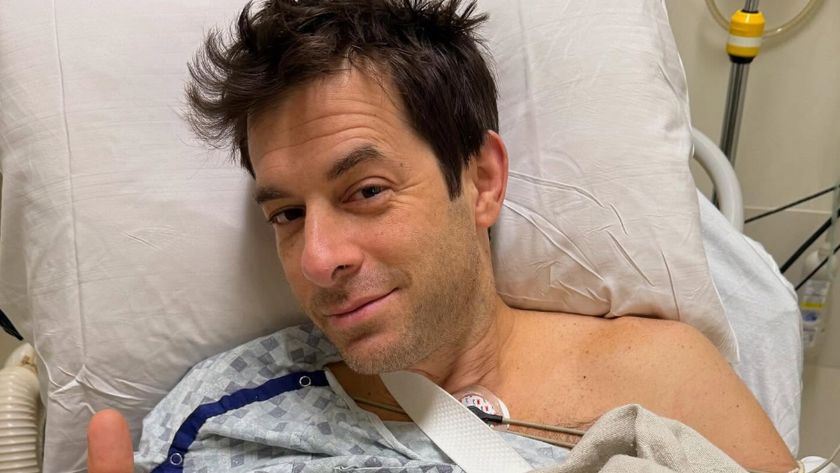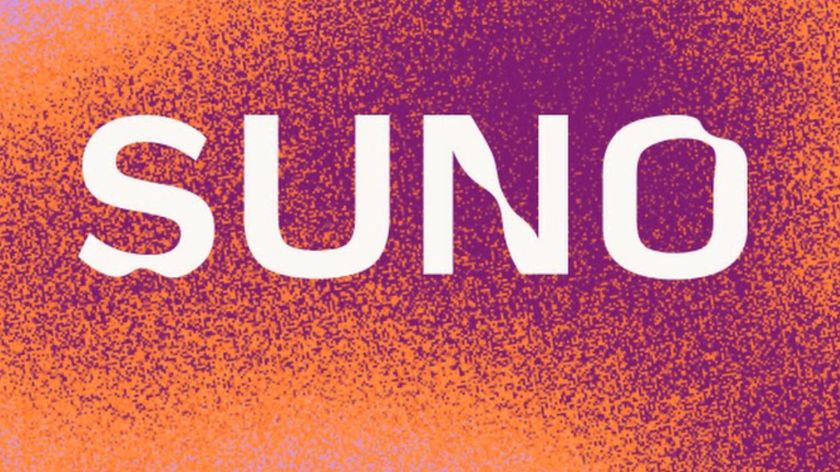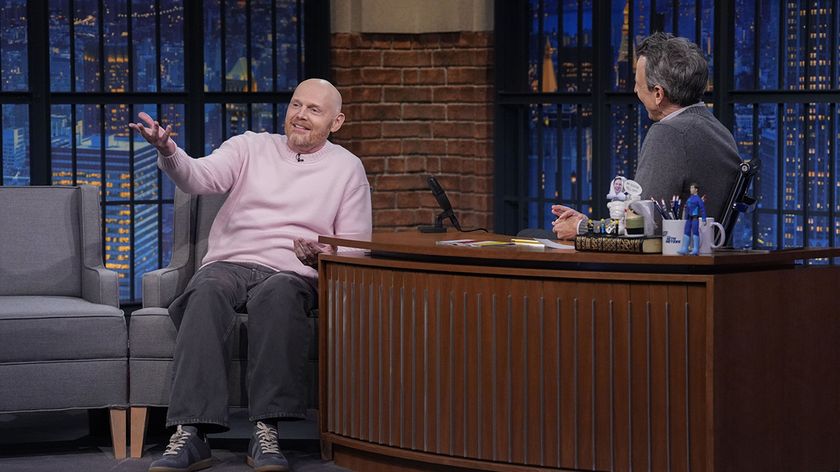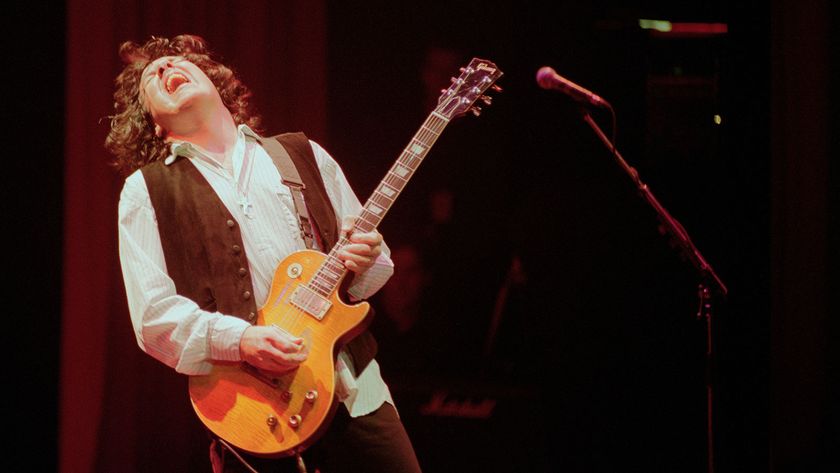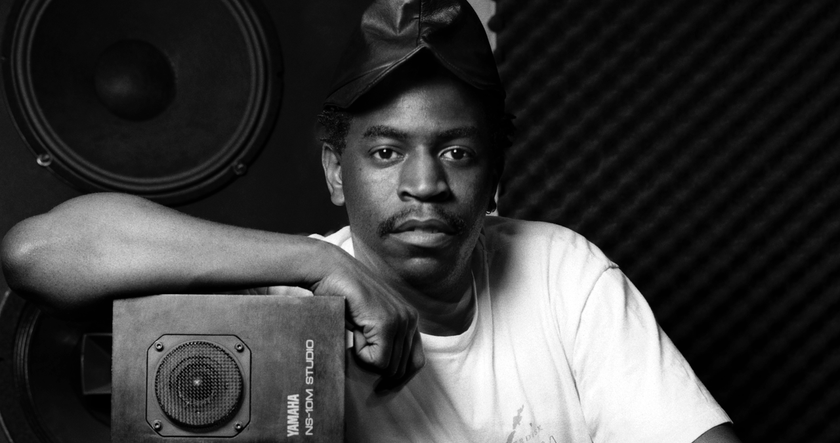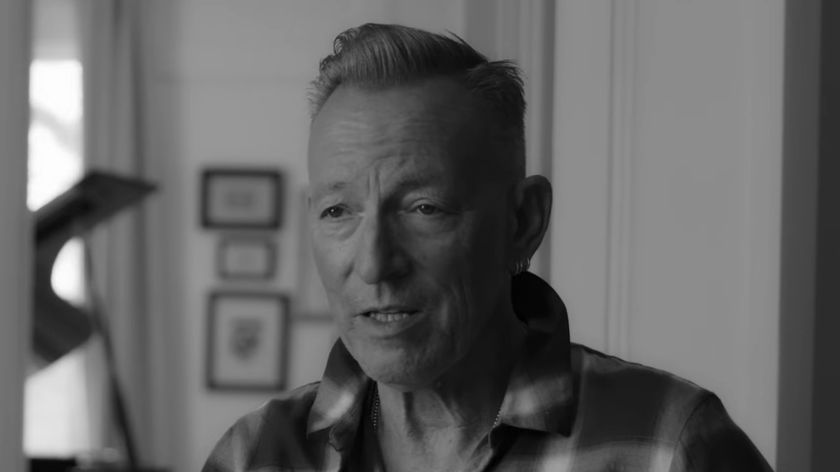ACT!: "Modular is totally unpredictable - once you start patching you can end up anywhere"
From Egyptrixx to ACT!, David Psutka’s sound experiments defy categorisation. Danny Turner grills the Toronto artist about his creative process
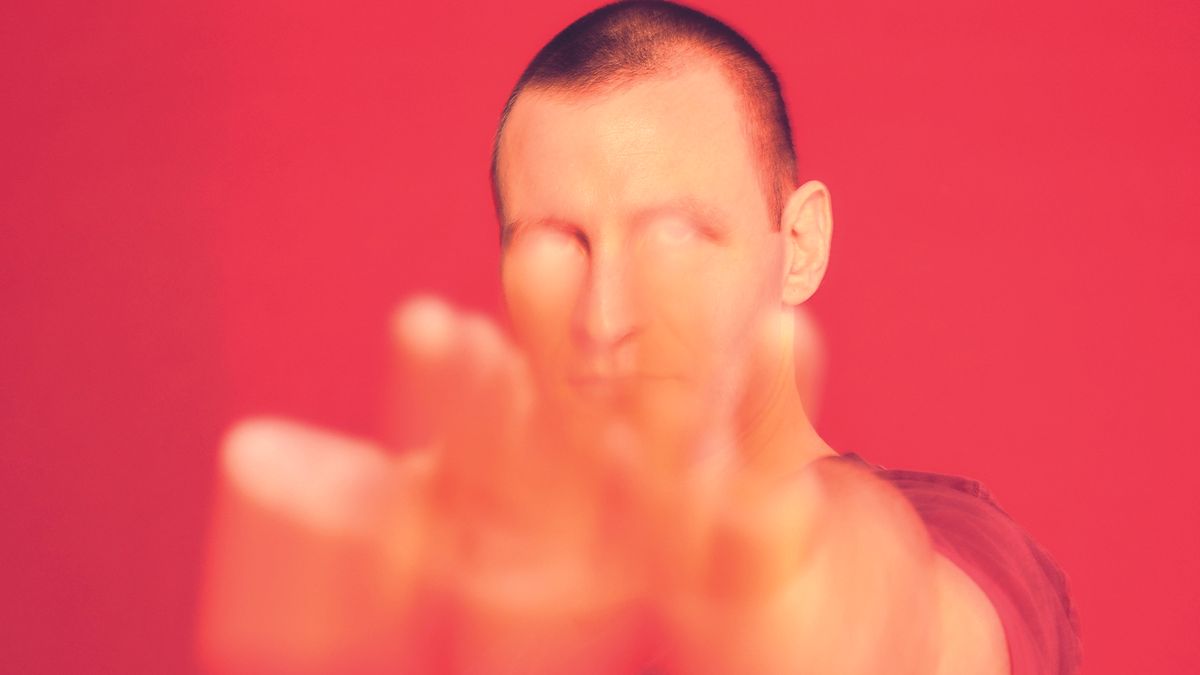
Since arriving on the electronic scene in 2008, David Psutka has never been one to compromise. The Toronto-based producer has attempted to reconfigure club music with his brittle digital drones and phosphorous textures, collaborating and releasing albums under the names ANAMAI, Ceramic TL and Egyptrixx, the latter supplanted by his latest project, ACT!, in 2018.
Psutka’s improvised approach demands each album starts with a blank canvas; therefore it’s of little surprise that his second ACT! album Strange Bounty/About Life should take a striking left turn. Primarily written on guitar and processed via a series of MIDI converters and modular manipulations, the addition of vocals lends the album a bizarre familiarity amidst its tonal anarchy.
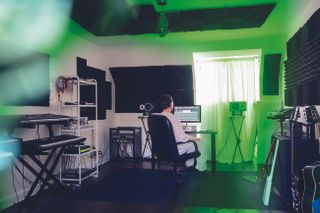
How have you found running your Halocline Trance label through this difficult period?
“Like most people, at the beginning of the pandemic I felt like I was at a crossroads, especially in terms of what I wanted to do with the label. Initially, it was created to facilitate my own work because I’ve created a lot of eclectic projects over the years and it made sense to give them a home base. However, the pandemic seemed like a good moment to open the label up to other artists because I feel there’s a real appetite to generate music at present.”
Why did you retire your Egyptrixx project and create ACT! for the majority of your releases now?
“Egyptrixx felt like it had reached its natural arc, although I’m not sure if it’s been completely retired as I don’t think in terms of chapters and timelines. That project was very much situated in club music. It wasn’t an attempt to make a straight club sound but to meditate on that experience, so the rules for the music were quite different to what I’m doing now.”
Rather than guide the listener in a particular direction, your music seems to instead ask them to interpret a feeling. Are you guided by those sensations when you’re making it?
Get the MusicRadar Newsletter
Want all the hottest music and gear news, reviews, deals, features and more, direct to your inbox? Sign up here.
“For my solo work, each project has certain parameters that I try to stay within, but it is more about how the sounds make you feel, the atmosphere they create and the experience of engaging with sound as opposed to chasing specific genre signifiers. For me, it’s about the actual sensation of connecting with an instrument and creating moments, whether in a live context or through static recordings.
“The whole Halocline Trance family has a multimedia approach, with musicians, graphic designers and video artists working on projects together, and that helps give an identity to my work.”
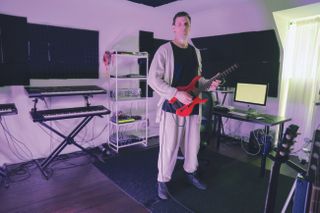
We read that you get up at 5:30am to work on music. Presumably there are no distractions at that time?
“I’m an early riser, but I also have a four-year-old daughter so it’s nice to have some serenity and focus, which is harder to achieve when she’s awake [laughs]. During the pandemic my rhythm and daily cycles were disrupted due to not being able to go to venues, play shows or go on tour, but I discovered that my brain patterns work a little differently in the morning. I feel like I’m more creative and focused, but as the pandemic recedes I have to try to keep that going.”
What were some of the conceptual ideas behind the new ACT! album Strange Bounty/About Life?
“The guiding principle behind this record was about returning to the guitar as a central instrument, which it had been earlier in my life but somehow got lost along the way. I’ve been making music for a couple of years that’s very process-heavy with a lot of the compositional ideas coming from modulation and modifying instruments. With this record, I had the urge to play again, improvise and write and generate ideas without thinking too much. I’m not a keyboard player, so I used a lot of MIDI conversion and A/B routing by sending the guitar through various synths and MIDI boxes to generate synthesiser sounds.”
You’d never know the album was written on guitar. Was the objective to disguise it?
“Whether writing on guitar or other instruments, the process usually starts with lots of improvisation. At some point I’ll document that, edit things together, refine and cobble until only the vestiges of conventional songwriting remain.”
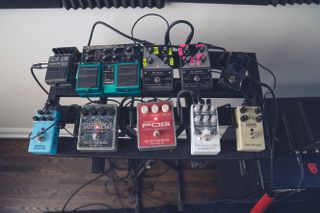
The addition of vocals brings quite a new element to your sound, and you collaborated with Robin Dann and Alanna Stuart on that front?
“I was mostly looking for vocal and compositional ideas and I’ve wanted to work with Alanna and Robin for a while because they’re a great songwriting team. They added vocals to most of the tracks and some of my vocals are on there too. We did hope to be a little more physically connected but could only work when the pandemic would allow us, so certain months we’d get together in a room and other times we’d send files back and forth.”
Alanna’s vocals, in particular, really change the tone of your music…
“I wanted the album to have an element of digital electronic dub – that ’80s mad professor sound that has a lot of songcraft in it, but is driven by sound design and atmosphere. I knew that both Alanna and Robin could tick those boxes and their voices add a really beautiful human dimension to the songs, which is key to how a number of the tracks work. Compared to the rest of my back catalogue, there’s definitely a unique vibe to this record.”
Did you sample a gaming machine for segments of the track titled Lotto?
“They’re all samples from casinos that I got from an open source sound bank called Freesound. There’s a couple of field recordings throughout the record that I made myself, but the sounds you mention on Lotto and 50 Million Motives For Making help tell the story of the song a little more clearly. I’ve always been really interested in the sensory experience of casinos and gaming arcades, especially the sound, colour and malaise of these places. The sounds, lights, blackened windows and volume create a very deliberate and intentional sensory experience.”
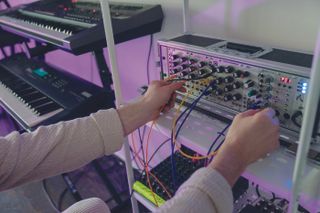
The environment is designed to keep you there, we believe – no clocks…
“I’ve read about the experiential engineers who design these venues – it’s similar to shopping malls where a lot of things are thought through from the temperature of a room to the level of ambient sounds and volume, which are all designed to create a light hypnosis. Casinos, especially, are quite an experimental music environment with all of the blippy, attuned sounds and soft polyphonic melodies, and I guess Lotto taps into some of that.”
Do samples suggest ideas to you or are you using them to fill in the blanks?
“To be honest, it’s hard to remember what I did on some of this album but I know that I had a thematic focus for each of the tracks and began collecting field recordings. Lotto has a lot to do with optimism or a false sense of hope and manipulation, which is part of gambling or consumerism in general. They’re coaxing people to hope for the best even if it’s unrealistic – a kind of toxic positivity.”
Your studio setup is fairly limited gear-wise…
“Over the past five years I’ve definitely been getting rid of more gear than I’ve added. Around 2017, I started to let go of a lot of synths and chose to focus on just a few, but I work semi-regularly out of Junior Boys’ Jeremy Greenspan’s studio. He has a big workspace about half an hour from here and we’ve been working together for years now. Jeremy’s vision is the complete opposite to mine – he has every piece of gear ever made and because I have access to all of that stuff I can afford to keep my space incredibly streamlined.”
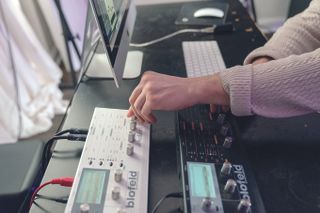
At what stage might you visit Jeremy’s studio to enhance whatever you’re working on?
“He has a big studio built around an analogue workflow with everything recorded to tape. He has an SSL console, cool analogue synths and a great collection of outboard compressors, EQs and stereo effects. It also contains lots of weird Altec preamps and old keyboards; facilities like that are getting harder to find. We do a lot of mixing and production work together, we’re always working on something.”
It sounds like he provides analogue while you focus on digital hardware synths from the late ’80s or early ’90s?
“I sold all of my analogue synths to Jeremy and since then I’ve been buying digital synths and some Eurorack stuff. I guess the Korg Wavestation is mid-’90s and the Yamaha DX7 is more early ’80s, but I have a couple of Waldorf Blofeld desktops, which is a newer synth and that’s probably the one I use most for creative sound design and workflow.
“I’m really into random LFO patterns and the Blofeld has a matrix that can almost be used as a modular system because you can map any controller to any parameter. But I love the Roland JD-800 and have a massive collection of around 100,000 different DX7 voices at my disposal if I need to find something. I’m not a synth snob, so when I finish this record I’m looking to start collecting some analogue synths for my next project.”
As with guitar, do you aim to process your hardware synths through external machines?
“Some of it’s going through pres, but a lot of the sounds on the record are straight from synths like the DX7. Transposition and mapping from one instrument to another is a big part of my process. For that, I’ll turn to my Kenton MIDI box and I also have another one made by Sonus who make great little audio MIDI solutions, especially for guitar. I use those every day in the studio because they take whatever I’m playing and convert it to MIDI. I’ll also play guitar through an amp and that might go into a synth or possibly a DAW and back into a synth, so I do tend to use lots of routing.”
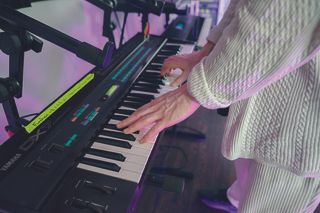
Your Eurorack setup is quite condensed but plays a big role in your sound…
“The first semi-modular thing I owned was my System 100 and I’ve been collecting modular stuff for about 10 years, but I’m now down to a very small Eurorack setup consisting of modules from Synthesis Technologies, Pittsburgh Modular and Mutable Instruments. I have a couple of oscillators and a few weird LFOs and filters, and I like to use splitters on my modular rig because I prefer to take a source and put it through a few different machines.
“The Kenton audio MIDI to CV converter is great for Eurorack, so I’ll often send that into the PC or other things. The plan is to move into a new studio next year and expand my modular setup a little because I love the creative workflow. It’s totally unpredictable and once you start patching you can end up anywhere.”
There are lots of modular sounds on the album, and they often sound quite uncontrolled…
“With the ACT! material the tension is always between the musical and non-musical sounds. All of the songs combine traditional musicianship and songcraft with lots of noise and non-musical elements and I find that modular is an amazing paintbrush to create all of those non-conventional sounds.”
You’re not one for staring at a screen?
“I use a combination of Reason, Ableton or Pro Tools depending on the process, but I’m spending less time looking at the screen now, especially for this record. There’s some automation mapping, which is a DAW-centric process, otherwise the PC is mainly used for a little MIDI editing and audio capture. I do mix completely in the box, so I have to use a lot of plugins for my mixing environment, but I don’t use a lot of VST synths and don’t like looking at screens.”
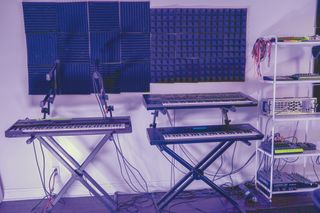
Where do you stand on generative tools for music?
“I’ve been working with an AI/AR collective in Toronto and we did a soundtrack together last year. That stuff is definitely interesting to me, but I’m not sure if it’s brand new. The idea of generative or autonomous music is very cool – I actually did a lecture on this subject last winter and surveyed a lot of the stuff that’s out there. Much of that technology is not fully formed yet, but conceptually I find it very interesting.
“Anything with oscillators or LFOs is fundamentally generative, and that’s been a part of synthesis technology since the beginning, but there’s always a human being conducting or shaping it. The coolest AI generative tool I’ve been able to find is a lyric generator. To me, that felt very novel, but I’ve not seen anything that’s completely disruptive – most of those applications are just a few degrees beyond whatever’s commonplace with modular or most DAWs now.”
Does the lyric generator provide lyrics to music you’ve fed in or is it more simplistic?
“It’s from a simple website called theselyricsdonotexist.com. You just give it a few parameters and it basically pukes out a whole song with lyrics. I’m not an expert, so probably shouldn’t be talking about it publicly, but a lot of the audio and song creation AI tools are just core generators that have existed for a long time and wouldn’t normally be classified as AI.
“How do I feel about the idea of human obsolescence? I don’t know if it’s being threatened. I’d be worried if I heard interesting music that was being generated algorithmically, but I don’t think we’re there yet. With new technology you often get people who explore a space just to see if they can, but you could uncharitably call that a gimmick.”
Have you had time to compute the direction that this album has taken you in and where it might lead you in your future projects?
“I’d been through a period of experimentation for a couple of years where a lot of my work was spontaneous. I was trying to challenge myself to be bold, brash and impulsive, but this record signifies a new chapter for me. It’s more refined and musical-sounding and I feel that my workflow will be more intentional going forward.
“I’ve agreed to a big tour in January next year, which will be built around the guitar, the Blofeld synth and some MIDI DMX automation mapping. I like taking modular synths out live, but they’re kind of a pain to take through airports. Airport security is getting a little more familiar with them now, but they still look a little bit like explosive devices.”
Strange Bounty/About Life will be released June 3rd on Halocline Trance.


Future Music is the number one magazine for today's producers. Packed with technique and technology we'll help you make great new music. All-access artist interviews, in-depth gear reviews, essential production tutorials and much more. Every marvellous monthly edition features reliable reviews of the latest and greatest hardware and software technology and techniques, unparalleled advice, in-depth interviews, sensational free samples and so much more to improve the experience and outcome of your music-making.

